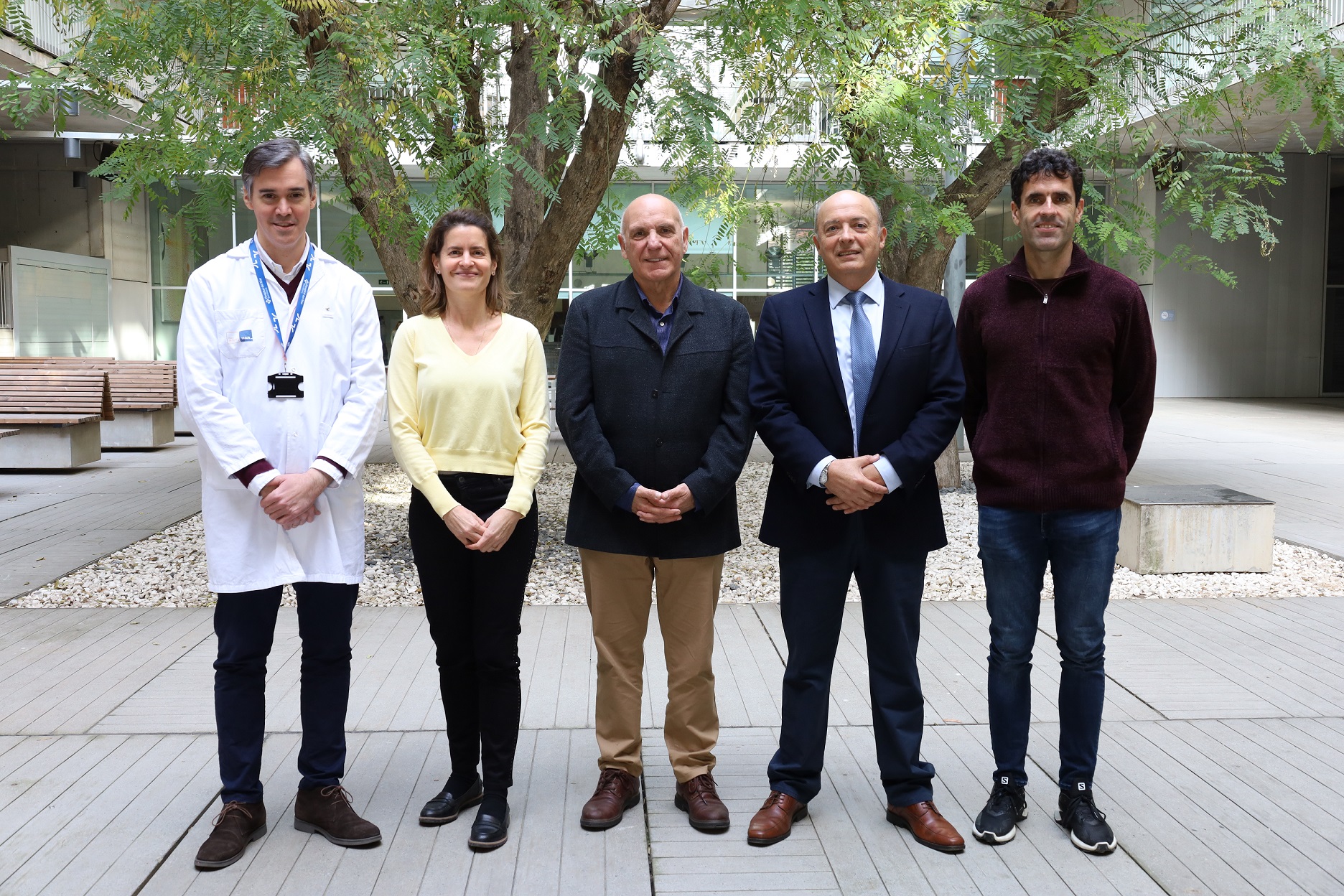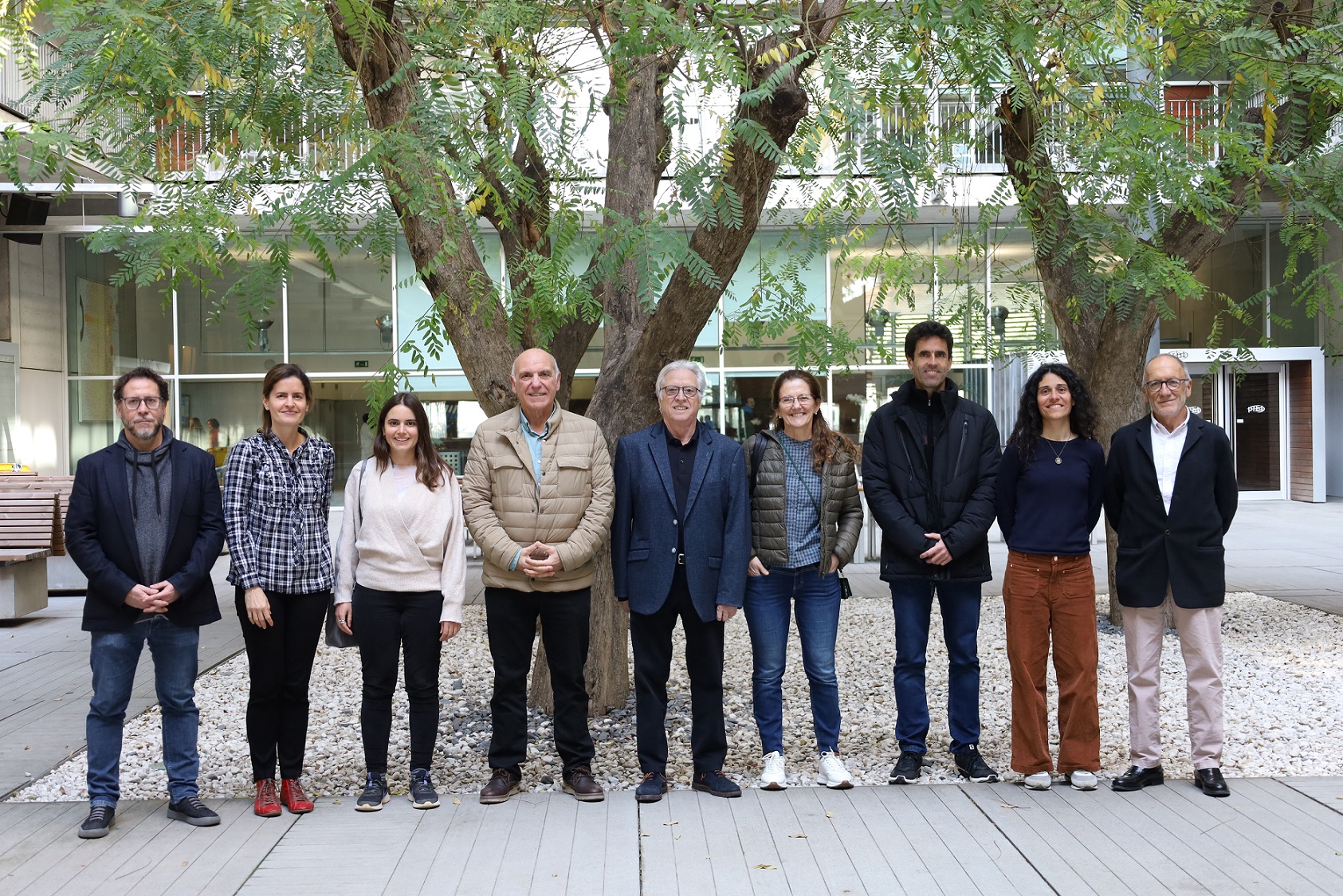
06/03/2024 - Press release
Between 1990 and 2019, the incidence of myocardial infarction in the Girona area decreased by 1% in women and 4% in men each year in the population aged 35 to 74 years, while, in the last 10 years, its lethality, the number of people who die 28 days after the onset of symptoms, has remained stagnant at around 15%
Data from almost five million hospital admissions and more than 70,000 death certificates have been analyzed as part of the REGICOR study, Registre Gironí del COR
These data suggest that primary prevention and rapidity of care have contributed to reducing the incidence of infarction and sudden death, increasing the chances of survival among patients arriving at the hospital.
Barcelona, March 6, 2024. - The decline in lethality among people who suffer a myocardial infarction has stagnated in the last ten years, according to data from the REGICOR study (Registre Gironí del COR) published in the Revista Española de Cardiología. At the same time, the incidence of this pathology has fallen continuously between 1990 and 2019, at a rate of 1% per year in women and 4% in men, a decline that has slowed in the last 10 years. The data refer to the population of the province of Girona, but work is already underway to apply the algorithm developed for its analysis to Catalonia as a whole.
The work was led by the REGICOR research group at the Hospital del Mar Research Institute, with the Program of Data Analytics for Research and Innovation in Health (PADRIS), and cardiologists from Hospital del Mar and Hospital Clínic de Valencia, as well as specialists in primary care and international experts and from the CIBER de Enfermedades Cardiovasculares (CIBERCV). To reach their conclusions, they examined 4,974,977 hospital admissions and 70,405 death certificates, provided by the PADRIS program, all anonymous. Their study reveals that the number of myocardial infarctions per 100,000 inhabitants and their prognosis have improved over the last 30 years. There are also fewer cases of sudden death, which have gone from 40% of all infarctions to 15%, and survival has increased to 95% among patients arriving at the hospital. At the same time, there has been no improvement in these indicators in the last 10 years.

From left to right Miguel Cainzos, Helena Tizón, Jaume Marrugat, Iván Palomo, Isaac Subirana.
In this regard, in the population aged 35 to 74 years in Girona, the incidence of myocardial infarction has fallen by 1% per year in women and by 4% in men between 1990 and 2019, while lethality, the percentage of deaths 28 days after suffering it, has stagnated at 15% over the last ten years. This despite the deployment of automatic defibrillators and rapid access equipment of the Infarction Code of Catalonia in Catalan towns. For Dr. Helena Tizón-Marcos, cardiologist at Hospital del Mar and researcher at her research institute, this fact points out that, "despite the efforts of the last 30 years to access patients as quickly as possible as soon as they present symptoms, there are factors that limit the capacity of the health system to extract patients to hospitals where they can have the blocked coronary artery repermeabilized. For example, in isolated populations, the onset of severe arrhythmias without anyone initiating cardiorespiratory resuscitation while medical help arrives, or the onset of symptoms without witnesses being able to call for help".
Another factor that has had a positive variation is mortality among women who suffer a heart attack. Thirty years ago, the same REGICOR group established that women had a greater risk of dying in the acute phase than men despite having an incidence of the pathology three times smaller, but now the difference has disappeared. This is explained by Dr. Irene Román, professor at the University of Vic-Central University of Catalonia and researcher in the REGICOR group and the Institute for Research and Innovation in Life and Health Sciences in Central Catalonia, who points out that "fortunately, that note of attention in the 1990s has meant that this difference has now been corrected and the chance of survival is similar in men and women".

D´esquerra a dreta Rafael Ramos, Helena Tizón, Anna Camps, Jaume Marrugat, Joan Sala, Yolanda Ferrer, Isaac Subirana, Irene Roman, Rafael Masia.
Improving healthcare planning
The authors of the study consider these results to be highly relevant for health planning. Dr. Isaac Subirana, one of the authors and head of statistics of the REGICOR group, stresses that it is necessary to "seek strategies that facilitate constant monitoring of the magnitude of the problem of myocardial infarction, which is still the leading individual cause of death and health expenditure in the world". In this sense, he made it clear that "health planning must be based on objective data that can be obtained annually, so that it is possible to analyze trends over time".
Public prevention policies, promoting health strategies through healthy lifestyles and health education to learn what to do in the event of a myocardial infarction, also among children, are important to continue reducing the number of deaths due to this pathology. As Dr. Jaume Marrugat, principal investigator of the study and coordinator of the REGICOR research group, recalls, "no one is born predestined to suffer a heart attack. The risk of suffering it is partly genetic, 50%, and partly depends on lifestyle (physical activity, diet, smoking and overweight)". "The proof is that we know that, despite having a certain genetic risk in the population, we can reduce the incidence of heart attack. By reducing the incidence, we will also reduce the unfortunate cases of sudden death. It is difficult to find someone who does not know of a case of sudden death in family, friends or acquaintances," he adds.
Reference article
Anna Camps-Vilaró, Isaac Subirana, Roberto Elosua, Iván Palomo, Juan Sanchis, Helena Tizón-Marcos, Miguel Cainzos-Achirica, Joan Sala, Rafael Masia, Rafel Ramos, Irene R. Dégano, Jaume Marrugat. Analysis of myocardial infarction incidence and case-fatality in the last three decades in the province of Girona. Rev Esp Cardiol 2023. https://doi.org/10.1016/j.rec.2023.10.005?
For more information, please contact
Communication Service Hospital del Mar Research Institute/Hospital del Mar: Marta Calsina 93 3160680 mcalsina@researchmar.net, David Collantes 600402785 dcollantes@hospitaldelmar.cat?
Servei de Comunicació:
Marta Calsina Freixas(ELIMINAR)
Tel:
(+34) 93 316 06 80
Doctor Aiguader, 88
08226 Barcelona
© Institut Hospital del Mar
d'Investigacions MèdiquesLegal Notice and Privacy Policy | Cookie Policy | Site Index | Accessibility | Find Us | Contact